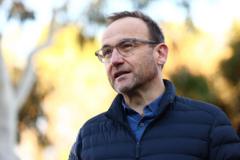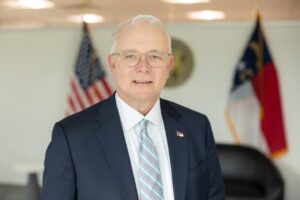Namibia's recent election results have broken new ground in the region, as Netumbo Nandi-Ndaitwah of the SWAPO party becomes the first woman to lead the country while the ruling party retains power despite economic discontent. In a time marked by shifts across southern African politics, SWAPO secured a majority but noted a decrease in parliamentary seats amid growing opposition challenges.
Namibia's Historic Election: First Female President and Ruling Party Triumphs

Namibia's Historic Election: First Female President and Ruling Party Triumphs
In a significant electoral milestone, Namibia has elected its first female president, reflecting both progress and challenges in southern Africa's political landscape.
In a year marked by dramatic political changes in southern Africa, Namibia has diverged from this trend, affirming its ruling party's leadership. The electoral commission announced that the SWAPO party has won the mineral-rich nation's general election, with Netumbo Nandi-Ndaitwah making history as the first woman president.
At 72, Nandi-Ndaitwah previously held the roles of deputy prime minister and minister of international relations and cooperation under late President Hage G. Geingob. Following Geingob's death in February, an interim president took over but chose not to run for election. Nandi-Ndaitwah captured 57.31% of the presidential vote, leading SWAPO, which has governed Namibia for over three decades since its independence.
Despite this victory, SWAPO's grasp on Parliament has weakened, as it secured 51 out of 96 seats—down from 63 in the 2019 elections. Analysts suggest such losses reflect growing public frustration with the stagnant economy. Meanwhile, the opposition party led by Panduleni Itula, the Independent Patriots for Change, emerged as the second-largest party with 20 seats in Parliament, indicating an evolving political dynamic. Various other opposition parties divided the remaining seats, demonstrating a shifting political landscape in Namibia amidst its historic election results.
At 72, Nandi-Ndaitwah previously held the roles of deputy prime minister and minister of international relations and cooperation under late President Hage G. Geingob. Following Geingob's death in February, an interim president took over but chose not to run for election. Nandi-Ndaitwah captured 57.31% of the presidential vote, leading SWAPO, which has governed Namibia for over three decades since its independence.
Despite this victory, SWAPO's grasp on Parliament has weakened, as it secured 51 out of 96 seats—down from 63 in the 2019 elections. Analysts suggest such losses reflect growing public frustration with the stagnant economy. Meanwhile, the opposition party led by Panduleni Itula, the Independent Patriots for Change, emerged as the second-largest party with 20 seats in Parliament, indicating an evolving political dynamic. Various other opposition parties divided the remaining seats, demonstrating a shifting political landscape in Namibia amidst its historic election results.























